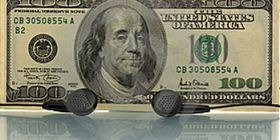Pitching songs that are exceptional is a critical part of the equation for success—whether you write those songs or publish them. No matter how well you take care of business, it’s unlikely there will be any business to take care of—unless your songs are strong.
But regardless of how good they are, before your songs can be recorded by artists, or included in television shows and movies, you need to get them heard by the right people—the decision makers who have the power to say, “Yes.” This article will address what to do—and what to avoid doing—when pitching songs.
How Many Songs to Pitch
Without the benefit of a crystal ball, it’s impossible to anticipate which song might be the life-changing one that a music publisher, A & R executive, record producer, or recording artist might feel is perfect for a given project. When an opportunity to play songs for an industry professional presents itself the temptation is strong to play as many songs as possible while that door is open.
But time is valuable, and part of your job is to narrow down your list to only your very strongest material—those songs best suited for the project or the company with whom you are meeting. Industry pros don’t need twenty more “perfectly crafted” songs; they only need those rare, exceptional songs that separate themselves from the pack and jump out of the proverbial pile. It’s unlikely that even the most successful writers and publishers have a glut of songs that fit this description.
Danny Berrios, Creative Manager, A&R at Downtown Music Publishing Group stated, “I think a good number of songs for a writer to play in a meeting would be three to five. As far as when I pitch—I try to stick to around five, give or take a couple.” This sentiment was echoed by virtually all the publishers to whom I asked about the ideal number of songs for a writer to play during a meeting.
Tim Hunze, Partner, Parallel Music shared, “If I leave the door open to send me other songs, don’t send more than one at a time—and only when you really, really believe in it. If you send too many and too often that’s an immediate turn off. I do the same when I pitch to people.”
Less is more. When you email or drop off one song it makes a statement that you feel strongly about this particular song. One song is more likely to make its way to the top of the pile than a submission of three or more.
When pitching by mail or email it is always best to ask what format the recipient prefers. While some request MP3s, others prefer a link, while others would rather receive a CD.
What to Do Before You Pitch
Prior to your pitch, research the kinds of material the company or individual works with and be sure the songs you plan to play are appropriate. You can check online to learn about the writers a publisher represents and the artists on a record label’s roster.
Before pitching your songs digitally (i.e., MP3) it is imperative to embed your recordings with metadata. Metadata can be thought of as the label on a digital recording. It provides contact information as well as info such as the names of the writers, artist, and publishers. iTunes and Sony Sound Forge are among the programs that allow you to easily include this information in your music files.
At a conference I attended, a music supervisor stated that when she receives an MP3 that is not embedded with contact information, after the song has been downloaded it is no longer possible for her to know where it came from. She described this scenario as her #2 pet peeve. #1 was receiving a song she loves and hopes to place, then subsequently learning that the synchronization and master use licensing rights are not available. The music supervisor who shared this was joined by the others on the panel as describing failure to pre-clear songs as the “cardinal sin” when pitching to them.
Pre-clearance means confirming that all of a song’s synchronization and master use rights owners (including writers who control their own share of the publishing) are on board to license the song—before pitching it. Note that for songs that have multiple publishers, it takes only one publisher to issue a mechanical recording license that grants permission for the commercial release of an audio recording. However, music supervisors and music libraries require permission from everypublisher and rights controller of a given song before they will represent it or place it in a television show or film.
At Your Meeting
It might go without saying, but respect the person with whom you are meeting by arriving on time and turning off the ringer on your phone. Be sensitive to your host’s cues and resist the temptation to extend your time when the meeting is winding down.
It’s important not to “hype” your songs. Describing your song as “the next GRAMMY-winning song of the year,” or saying that your work is “better than the junk on the radio,” is a sure-fire way to be perceived as an amateur. Let your songs speak for themselves.
Downtown Music Publishing Group’s Danny Berrios summarized this. “A big turn off when meeting with a writer is someone that’s too confident. Being confident in your craft is really important, but so is a willingness to learn and improve.
Tom Luteran, Vice President of Creative, Sony/ATV Music, stated, “A great attitude also goes a long way because if you decide to work with someone you need to know that they will be able to make it through the highs and lows that every writer experiences. Conversely, a negative or know-it-all attitude is a huge red flag for me.
In terms of the writing, lyrics that sound like they came out of a rhyming dictionary never work for me. When I meet with a new writer I am looking for someone who does something different. It doesn’t have to be 180 degrees different than anything going on now; just slightly different is always a positive. Chorus melodies are great ways to separate yourself from other writers too.”
When pitching face-to-face, prepare a list of songs you plan to play, and have them readily available. You don’t want to keep someone waiting while you rummage through your briefcase to locate a particular CD, or try to locate files in your phone or computer.
Have additional songs available as a back-up plan. As the meeting progresses the input and feedback you receive should dictate which songs you play. For example, you might learn there are topics an artist prefers—or prefers not—to sing about, or that there is a new musical direction the artist plans to pursue. You might find that specific tempos or time signatures are needed—and that others are to be avoided.
There is no rule about whether or not to include lyric sheets. Many writers and publishers do not send lyric sheets when sending out their material. If the recipient wants a copy of the lyric they will request it afterwards. But it’s a good idea to have printed lyric sheets available at face-to-face meetings, and ask whether the person listening would like to follow along.
How to Get Invited Back
When playing songs for a music industry professional, one of the goals is to make an impression that will keep that door open. The person listening might make a comment or offer a critique that you vehemently disagree with. Avoid being defensive. Arguing, or explaining what your song “really” means, will not make them like your song any better. However, it will likely get you branded as a person to be avoided.
I asked several publishers and A & R executives what a writer can do to make a good impression—and what turns them off.
Parallel Music’s Tim Hunze, stated, “It’s only happened a few times in my career, but being rude or disrespectful is an immediate turn off. I realize my opinion is just an opinion. I’ll be the first to tell anyone that fact. But if you don’t want my opinion, don’t ask me for it. I tell up and coming writers, ‘Be polite and be cool.’ That will get you a long way with me.”
Noah Gordon, Head of A&R/V.P. Publishing, Average Joes Entertainment expressed a similar sentiment. “Attitude is so important. Writers often outwardly seem hurt or mad if I don’t take a song. When I hear a song and pass, that doesn’t mean I hate the song or the writer. It only means it’s not what I need right now. As long as I hear strong material and they don’t waste time explaining why the song is good, or why I should record it, I’m always open to future meetings.”
Dan Hodges, Owner/GM, Dan Hodges Music, shared his thoughts on this topic. “When I meet a writer for the first time, I want to make my own judgment on the music and spend the time just getting to know them. If someone comes in telling me how great they are or how the songs are hits before I even hear them, I turn off.
If the writer didn’t handle the meeting very well, it would be hard to take the time to get with them again. Time is scarce and you have to put your best foot forward. First impressions are important if you want someone to take the time out of their busy day to meet with you. To meet with them again, I’d have to hear a song of theirs that piqued my interest.”
If your songs are not competitive with the current hit makers, or are not appropriate for the person to whom you are pitching, your personality alone is unlikely to get you invited to play additional songs. Butch Baker, Senior VP of Creative Services, HoriPro Entertainment summarized it well. “I try not to judge what they are carrying around with them but the ‘come back factor’ is always about songs. I love everybody but I need songs that I don’t already have—if that makes sense.”
Woody Bomar, President, Green Hills Music Group, echoed that sentiment. “Assuming that the writer is professional and has a good attitude, it is all about the music. That’s what turns me on or off. If I find the music compelling and if it has an identity that differentiates it from everything else I hear on the radio, I will likely take another meeting.”
If you collaborate, ask the person with whom you are meeting if he or she might be willing to set you up with one of their writers or artists. Publishers often do this as a test to see how you conduct yourself—and to evaluate the resulting song. But they will only set up a session if the songs you played made a strong, positive impression.
When asked what makes him likely to invite a writer back for a subsequent meeting, Downtown Music Group’s Danny Berrios stated, “I’m willing to meet with a new writer again when I hear potential in their songs. It could be a new track/writer whose tracks aren’t ‘master quality’ yet, but there’s something inventive or different about their production. Or it could be a writer whose choruses constantly deliver – even if they still need to tighten up their verse lyrics a bit.”
How to Follow Up
There is no rule regarding how frequently to follow up—or how long to wait after a meeting or song submission to do so. Some industry professionals feel that following up is unnecessary; that they will initiate subsequent contact if they choose to do so. Others concur that touching base via email or leaving a phone message one time after a meeting is acceptable. The consensus among those I asked was that repeatedly following up was not appreciated.
Average Joe’s Noah Gordon prefers a follow up once, after about two weeks. He stated, “If they gave me a song that I LOVED and I told them I loved it, then maybe remind me about the song in a month, because once in a while a great song will get lost in the shuffle. Only because there are so many songs and I’ve only got a limited number of “working” memory neurons.”
Sending a note expressing that you appreciated and enjoyed the meeting can serve as a gentle reminder if the recipient had promised to take a second listen.
Sony/ATV’s Tom Luteran stated, “A writer should gauge each person’s interest and follow up accordingly. If the meeting goes well it’s completely appropriate to get back in touch every 4-6 weeks especially if you have a great new song. If you follow up and get no reply, then you know the answer. No answer is a “no” answer.”
Just as there are no ironclad rules regarding how to write songs, there are no rules that address how to pitch them. But there are guidelines.
Limit the number of songs you pitch at any one time. Be sure your songs are appropriate for the recipient, and when pitching them digitally, embed your contact information. Before pitching for television and film be certain you can assign all necessary rights. Don’t hype your songs or defend them, and follow up only once.
And most important … pitch exceptional songs that are innovative, original, and appropriate for the current market.
via BMI






